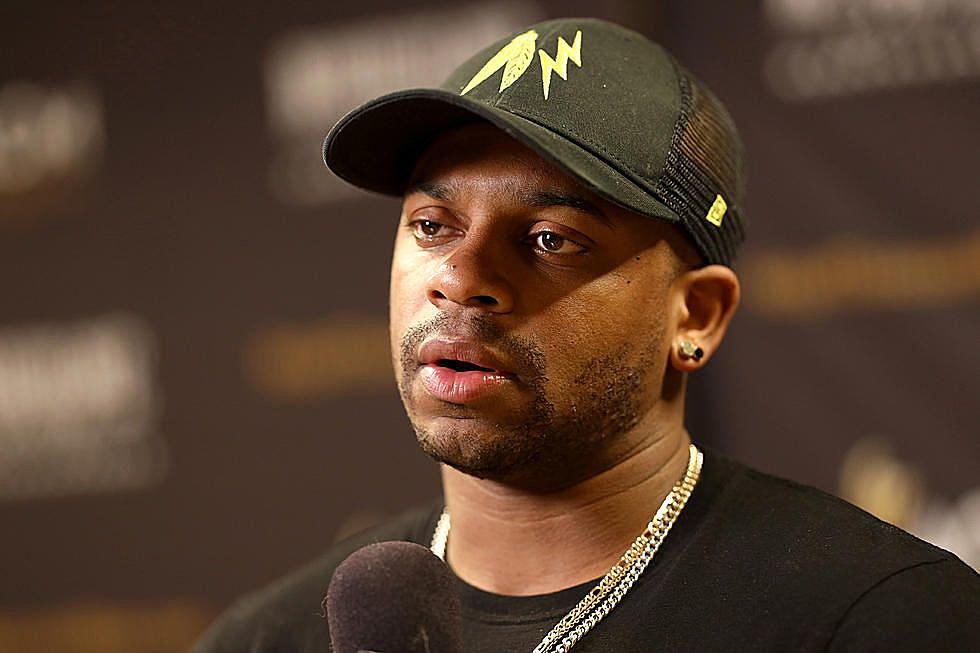
Jimmie Allen: ‘I Pictured My Son’ When Seeing Video of George Floyd’s Death
Like so many others in the United States, Jimmie Allen was stunned and saddened by the death of George Floyd, a 46-year-old Black man in Minneapolis who died after Derek Chauvin, a white police officer, knelt on his neck for more than eight minutes while detaining Floyd after he was accused of using a counterfeit $20 bill.
However, Floyd's death hit Allen especially hard because the singer, too, is Black.
"Things hit you harder when someone looks like you," Allen tells Today hosts Hoda Kotb and Jenna Bush Hager. "I pictured my son [Aadyn, who recently turned 6]; I pictured me. So, I was upset, you know?"
While Allen now understands that racism is a very real and pervasive issue in America, he admits that he grew up "in a bubble": In his Delaware hometown, his friend group included a mix of different races, and local police officers stepped up as father figures for the boys whose dads weren't around.
"They'd take us out to get some food ... They'd hang out with us ...," Allen recalls, "but even in the midst of that greatness, my mom always reminded me: She said, 'Hey, son, there are a lot of people in this world that are loving, but there might be some time in your life where someone might look at you different or treat you different because of the color of your skin.' And I didn't understand it for a long time ..."
As protests over Floyd's death and larger patterns of racial inequality took place around the country, Allen shared on social media that he believes "[i]t's our job as humans to point out the negative treatment of people ... If we see it and it doesn't bother us, we need to check our hearts."
To Kotb and Hager, he explains that he truly believes "there's more love out there than there is hate," and that in combating racism, "My job is to be persistent, patient and have compassion."
"Hateful words don't welcome a listening ear, so I wanted to say something that would address the situation and how I felt, but also let people know sometimes to lead with love," Allen explains.
He later adds, "There's so much out there to really give you a different perspective if you really want it ... Any time you see something, put the face of someone you love on that person you see treated unjustly, and that will wake you up in a minute."
On June 2, much of the music industry took part in a day-long blackout, meant to spur action to correct injustices within the music industry. While a number of artists loudly denounced racism and have been using their platforms to share messages of solidarity and information on how to get involved in the fight for equality, some chose to simply post a black square on their social media profiles — a trend that spread far beyond the music industry — or to stay silent for the day without making a statement.
"The support is great, but it doesn't mean anything if it's empty," Allen reflects of the movement. "What's the purpose of your black box? ... Are you really trying to bring awareness? When you post something, have a reason."
These Country Songs Were Born From World Tragedy:
More From Taste of Country




![Jimmie Allen Sells Posh $1.75 Million Nashville Home Amid Sexual Assault Allegations [Pictures]](http://townsquare.media/site/204/files/2023/05/attachment-jimmie-allen-house-for-sale-pictures.jpg?w=980&q=75)




